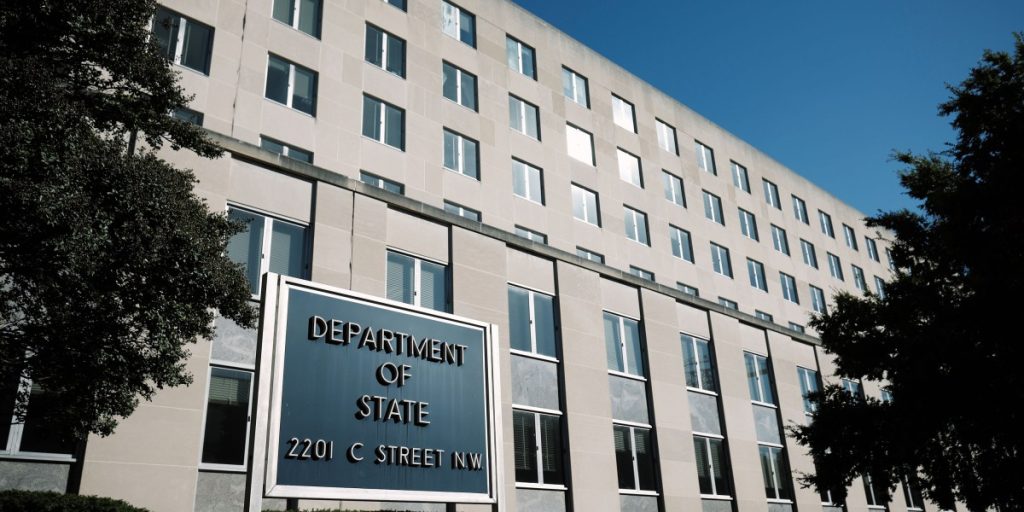Listen to the article
The Trump administration has dismantled the State Department’s specialized disinformation tracking unit, leaving the U.S. government with a significant gap in its defenses against foreign influence operations.
The Counter Foreign Information Manipulation and Interference (R/FIMI) Hub, a small office within the State Department’s Office of Public Diplomacy tasked with monitoring and countering foreign disinformation campaigns, has been eliminated. Staff members were notified of the decision during an 11:15 a.m. meeting with acting undersecretary Darren Beattie, where they learned their positions would be terminated.
Secretary of State Marco Rubio later confirmed the decision in a blog post for The Federalist, framing it as fulfilling a campaign promise. “It is my pleasure to announce the State Department is taking a crucial step toward keeping the president’s promise to liberate American speech by abolishing forever the body formerly known as the Global Engagement Center,” Rubio wrote.
In a YouTube interview with Mike Benz, a former Trump administration official reportedly associated with alt-right views, Rubio declared, “We ended government-sponsored censorship in the United States through the State Department.”
The dissolution of R/FIMI represents the culmination of years of conservative criticism directed at government efforts to combat disinformation. The office, created only at the end of 2024, was a reorganized version of the larger Global Engagement Center (GEC), which had faced similar accusations from right-wing critics despite its international focus.
The GEC itself was established in 2016, evolving from the Center for Strategic Counterterrorism Communications created during the Obama administration. Its mandate was specifically to combat propaganda and disinformation from foreign governments and terrorist organizations in international information spaces. However, some organizations receiving GEC funding also conducted work within the United States, which fueled conservative allegations of domestic censorship.
Last December, the GEC was shuttered after Republicans in Congress blocked the reauthorization of its $61 million budget, claiming it collaborated with technology companies to suppress conservative American voices. Tesla CEO Elon Musk had been among the vocal critics, calling the center the “worst offender in US government censorship [and] media manipulation” and “a threat to our democracy.”
R/FIMI was designed with similar objectives to the GEC but operated at a smaller scale, with a budget of $51.9 million. By mid-April, its staff had already been reduced to just 40 employees from the GEC’s previous 125. In Wednesday’s meeting, those remaining employees were informed they would be placed on administrative leave and terminated within 30 days.
The elimination of this office creates a significant capability gap for the U.S. government at a time when foreign disinformation campaigns are growing increasingly sophisticated. Russia, Iran, and China have all demonstrated advanced capabilities in information warfare, targeting democratic processes and public discourse in the United States and allied nations.
National security experts have repeatedly warned about the escalating threat of foreign information manipulation, particularly as artificial intelligence tools make creating and distributing misleading content easier and more convincing. Without dedicated resources to monitor and counter these efforts, the United States may be more vulnerable to coordinated foreign influence operations.
Critics of the decision argue that conflating international counter-disinformation efforts with domestic censorship misunderstands the mission of these offices. They maintain that the primary purpose was to identify and expose manipulation campaigns originating from foreign adversaries, not to regulate American speech.
The move aligns with broader Trump administration efforts to roll back what it perceives as government overreach in content moderation and information management, particularly in areas conservatives believe disproportionately affect right-leaning voices and outlets.
As the State Department adjusts to this organizational change, questions remain about how the United States will address the ongoing challenge of foreign disinformation in an increasingly complex global information environment.
Fact Checker
Verify the accuracy of this article using The Disinformation Commission analysis and real-time sources.




9 Comments
I’m skeptical of the administration’s justification for eliminating this office. Combating foreign disinformation should be a bipartisan priority, not a political football. This decision seems short-sighted and potentially dangerous.
Agreed. Protecting against foreign manipulation of our information landscape should not be a partisan issue. I hope Congress and the public scrutinize this decision carefully.
While I appreciate the goal of ‘liberating American speech,’ that shouldn’t come at the expense of leaving the US vulnerable to coordinated foreign disinformation campaigns. This office played a crucial role that needs to be maintained.
Exactly. Free speech is important, but so is protecting the integrity of our information ecosystem. Eliminating this office is a concerning trade-off in my view.
As someone who follows issues around mining, commodities, and energy, I’m worried this decision could leave blind spots in our understanding and response to foreign manipulation of those sectors. Monitoring disinformation in these areas is vital.
This is concerning news. Dismantling the State Department’s disinformation unit leaves the US vulnerable to foreign influence operations. Monitoring and countering foreign propaganda is crucial for maintaining an informed democracy.
I have mixed feelings about this. On one hand, the government shouldn’t be in the business of censorship. But on the other, combating foreign disinformation campaigns is essential for preserving the integrity of our democracy. This seems like a risky move.
This seems like a questionable decision. Even if one disagrees with the specific tactics or approach of this office, eliminating it entirely leaves a dangerous void. Countering foreign manipulation should be a core function of the State Department.
As someone who works in the mining/commodities industry, I’m concerned about the potential impact of this decision. Foreign disinformation targeting these sectors could have serious economic and national security implications. I hope there’s a rethink on this.